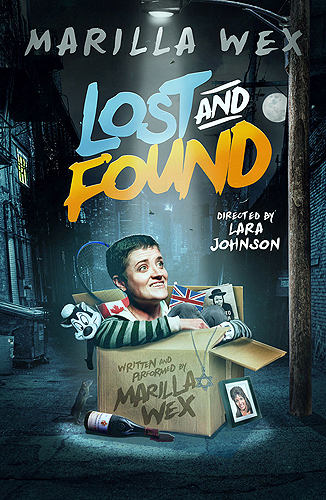Lost and Found and the JVC BY-110U
The annual Toronto Fringe Festival began yesterday, and until July 13th you have a large variety of plays and monologues to catch, with each show costing $12. Not all pieces run for multiple performances – some span 4 and go up to 11 – but the times are scattered across different days and times, making it easier for those with traditional and non-traditional work schedules (straight 9-5 vs. freelance) to catch something.
I recently ran some camera tests for a vintage JVC BY-100U 3-tube Saticon camera, using my workable (but not necessarily handy) combination of camera to miniDV recorder, and I’ll be taping a pair of performances of Lost and Found, a great one woman show written and starring the versatile Marilla Wex, and directed by Lara Johnson.
It’s a tight work chronicling the series of twists and turns and relationships which brought Wex to Canada, where she settled into a solid marriage and began several career streams in film, improv comedy, and voice work. More details and several media quotes (all deserving) are on her website. Lost and Found is funny, deeply personal, and specific aspects of the show will certainly ignite a little self-reflection on self-image, and removing damaging blinders which can prevent one from enjoying the flawed shell into which we’re born.
I did a test at a tech rehearsal this past weekend using an older consumer-grade, single-tube Saticon camera (a JVC GZ-S5) which proved two things: 1) tube cameras can handle reasonable levels of low light; 2) consumer grade cameras can’t touch the quality of 3-tube ENG gear.
The taping of Lost and Found is partially an experiment to see what a once-cutting edge camera (for its industrial purposes, circa 1986) can still achieve in the digital age, and whether the look of Saticon tubes – softer, warm pastel colours – has some function as an alternative approach to capturing and preserving memorable performances using words, dance, or things arty-farty.
Coming shortly: visual extracts from a podcast I did with Masters of Sex composer Michael Penn, including analogue-digital background material, and a montage tied to Penn’s series theme that’s rather naughty.
Cheers,
Mark R. Hasan, Editor
Big Head Amusements

